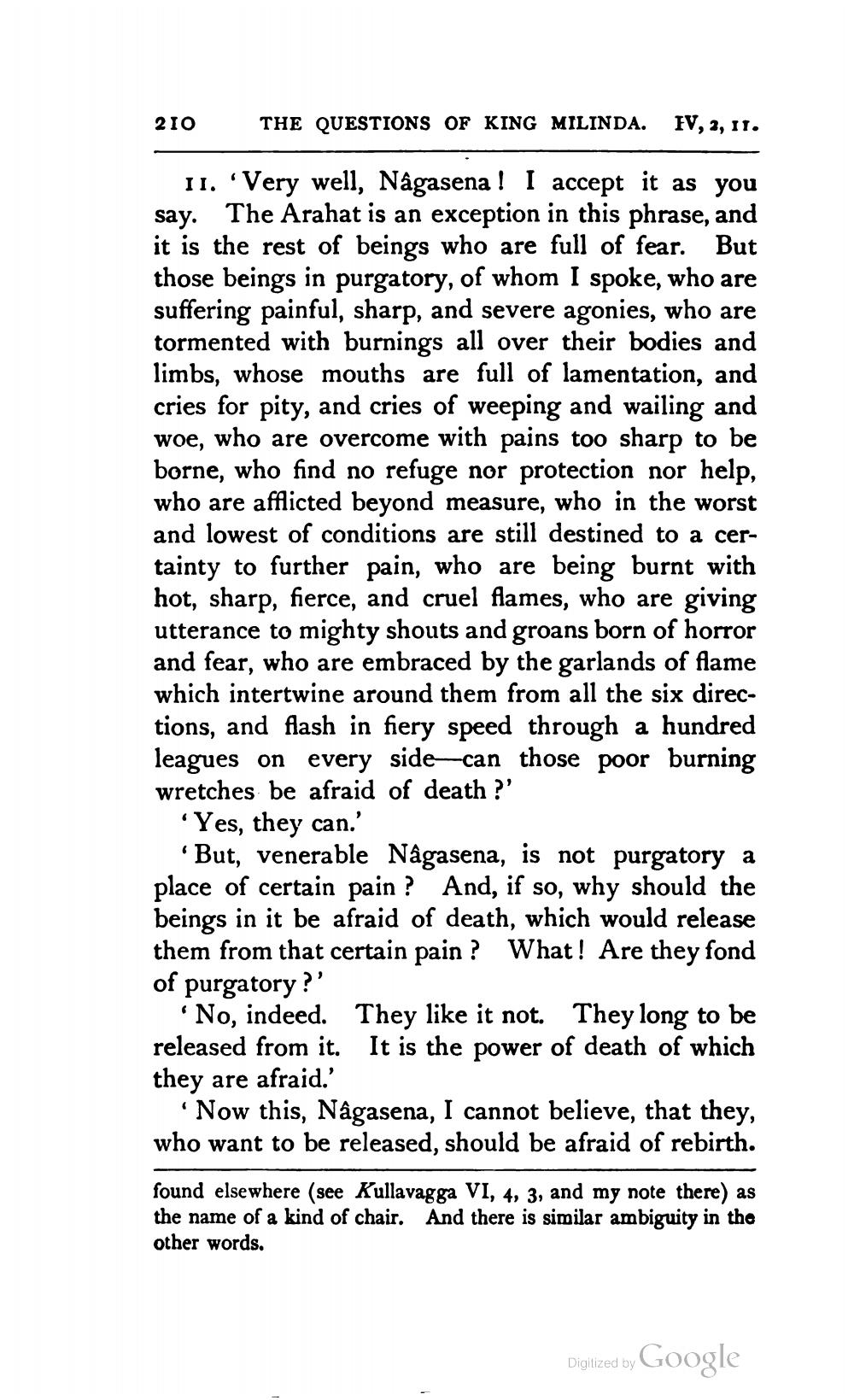________________
210
THE QUESTIONS OF KING MILINDA. IV, 2, 11.
II. Very well, Nagasena! I accept it as you say. The Arahat is an exception in this phrase, and it is the rest of beings who are full of fear. But those beings in purgatory, of whom I spoke, who are suffering painful, sharp, and severe agonies, who are tormented with burnings all over their bodies and limbs, whose mouths are full of lamentation, and cries for pity, and cries of weeping and wailing and woe, who are overcome with pains too sharp to be borne, who find no refuge nor protection nor help, who are afflicted beyond measure, who in the worst and lowest of conditions are still destined to a certainty to further pain, who are being burnt with hot, sharp, fierce, and cruel flames, who are giving utterance to mighty shouts and groans born of horror and fear, who are embraced by the garlands of flame which intertwine around them from all the six directions, and flash in fiery speed through a hundred leagues on every side-can those poor burning wretches be afraid of death ?'
Yes, they can.'
But, venerable Nâgasena, is not purgatory a place of certain pain ? And, if so, why should the beings in it be afraid of death, which would release them from that certain pain? What! Are they fond of purgatory?'
No, indeed. They like it not. They long to be released from it. It is the power of death of which they are afraid.
Now this, Nâgasena, I cannot believe, that they, who want to be released, should be afraid of rebirth.
found elsewhere (see Kullavagga VI, 4, 3, and my note there) as the name of a kind of chair. And there is similar ambiguity in the other words.
Diglized by Google




